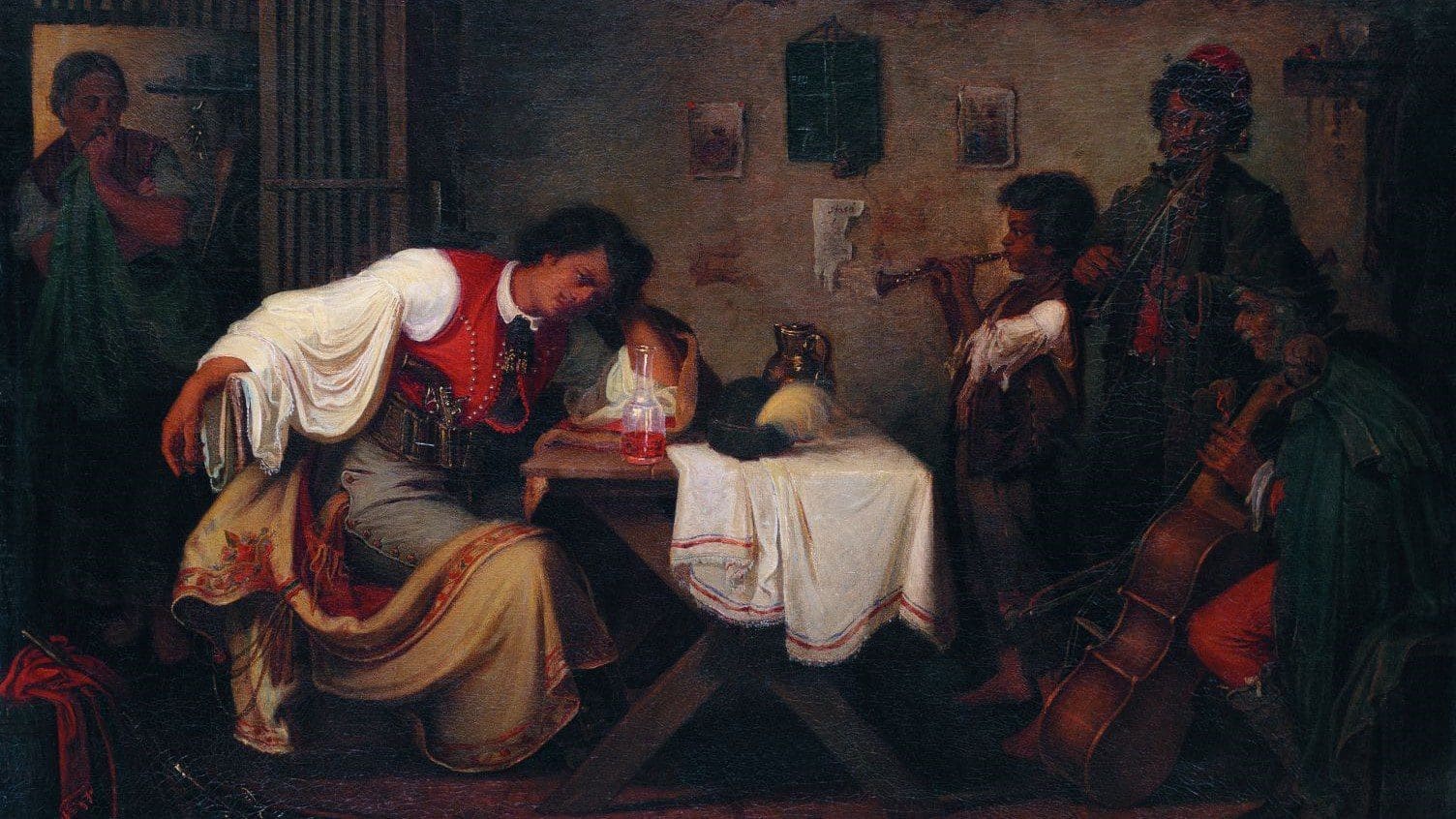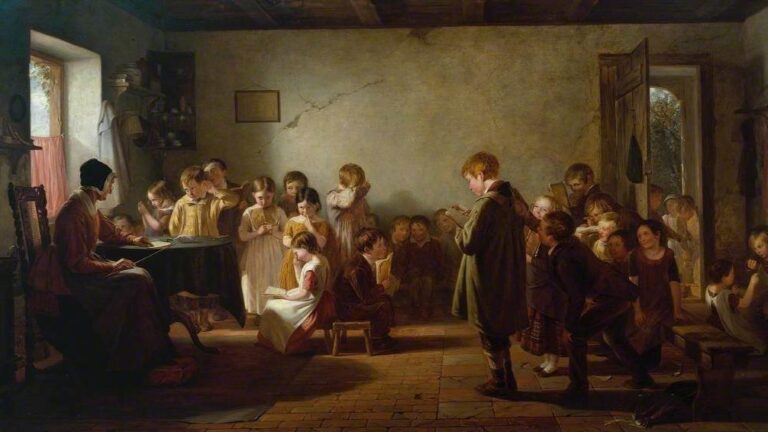To detail the record of the Conservative government for a non-British publication feels embarrassing. It feels like telling a friend about an old alcoholic uncle who can’t keep his hands to himself. Sure, you’ll moan about him with family but telling a friend feels inappropriate.
Still, Britain is an important nation, and its ongoing decline attracts natural curiosity. People have a right to know what has happened. Our uncle is a public figure after all.
Besides, people have to know the signs to look out for if they don’t want their uncle to turn out like ours. One minute he seems like a normal, intelligent bloke and the next he’s emptying a bottle of whiskey and destroying the foundations of civic life. Yes, the tale of Britain’s Conservatives is dark and depressing, but it might be educational.
I’ll get some qualifications out of the way. The Conservatives have had some bad luck in recent years. No government wants to be lumbered with a pandemic and a major European war in quick succession. It would also be unfair to make the Conservatives bear all of the responsibility for the failings that have marked this time. Their COVID regulations were at best too sweeping and protracted, for example, but a lot of right-wing commentators—this author included—beat the drum about COVID-19 in the earlier months of 2020 with such alarm that it encouraged such decisions. We have to bear responsibility for that.
Of course, the Conservatives have not been responsible for all that has gone on in Britain in the sense that major institutions—cultural, and educational, and related to the web of non-governmental organisations that is sometimes called ‘the Blob’—have been run by leftists. Still, what have the Conservatives done about it? Such people have been blessed with jobs and funding. Reams of New Labour legislation are still on the books. The Conservatives have grumbled about ‘wokeness’ issues while accepting the bases of its structural power.
I do not speak from a desire for political purity. One can imagine a staunch old-school conservative who cannot accept a right-wing government because it has yet to mandate going to church on Sundays and wearing bow ties. No, I speak from a desire for, well—anything.
The Conservatives have been in power for thirteen years and their lasting accomplishments could be written on the back of a ticket stub.
Asked at the recent National Conservatism conference in London to name his government’s finest achievements, Michael Gove—a consummate career politician, who has led more departments than most of us have eaten breakfasts—sounded as lost as a student with straight Fs being asked to explain what they had been doing in school.
As Britain faces blackouts—in large part thanks to the Conservatives’ ill-considered ‘net zero’ commitments—no meaningful efforts have been made to increase the nation’s energy supplies. Not only has immigration—perhaps the leading force behind Britain’s departure from the European Union—not been reduced but it has soared to all-time record levels. Housebuilding has increased, but it still lags behind demand to a miserable degree, ensuring there has never been such an alarming gap between houses prices and earnings.
This alone has spelled doom for the Conservatives—at the next election, yes, but perhaps far beyond it. British millennials are the first generation to be growing more left-wing as they approach middle age. Because of cultural leftism? In part. But also because of their material interests. Why should a young person drift rightwards—as young people have traditionally done—if they have slim prospects of owning property. People come to terms with order when they see its blessings. If there are no blessings, well—what are they supposed to think?
Even the causes one might think of as the bread and butter of Conservative governments have been neglected.
Take law and order. Police officers have not had—or have not used—the power to move eco-activists off the roads yet ‘misgender’ someone on the Internet and you might end up having your collar felt. Rampant property theft is hardly worth reporting when the police shrug their shoulders and move on. Even violent criminals often receive rather less than a slap on the wrist. Again, I’m not demanding something radical—some sort of militarised policing scheme along the lines of Nayib Bukele’s or Judge Dredd’s. Keep the roads clear, try to get back people’s belongings and separate psychopaths from society. Is that too much to ask?
Meanwhile, the Conservatives have sent a parade of uninspiring personalities marching through Westminster and off into retirement. David Cameron will be remembered because of Brexit—a decision that he campaigned to avert. Theresa May was hailed as a ‘safe pair of hands’ yet almost let a giant majority slip through her fingers in her heroically bungled 2017 general election campaign. Boris Johnson proved himself to be the selfish and unreliable egomaniac that he had been proving himself to be throughout his career. Liz Truss didn’t have a chance.
Rishi Sunak is the poster boy for managed decline—pointlessly cheerful, emptily sincere and endlessly polite as British institutions erode around him. He says immigration is too high without committing to measures to address it. He refuses to accept housebuilding targets to appease a demographic of well-heeled fifty-plusers who might be the only people left in the UK to vote for him (and even then, they often actually vote Lib Dem). It’s good that he has said that women don’t have penises but if the standard for a Conservative leader is that they express an opinion that most communists would have considered a bland truism twenty years ago, we’re in a lot of trouble. Are we meant to get excited about this?
There are various diagnoses of the causes of Conservative failure but the simplest is the most true:
they didn’t want to govern as their voters thought they would.
Theirs is not simply a failure to implement policies but a failure to believe in them.
Take a look at what outgoing Conservatives say. Lord William Hague—who, having failed as Leader of the Conservative Party and Leader of the Opposition, served as First Secretary of State, Foreign Secretary and Leader of the House of Commons—chides members of the Women’s Institute for not accepting male transsexuals among their ranks. George Osborne—who served as Chancellor of the Exchequer from 2010 to 2016—tuts about ‘harsh’ rhetoric over immigration and is plotting the return of the Elgin Marbles. These are not conservatives who failed to actualise a conservative vision, these are socially liberal managerialists who successfully actualised a socially liberal managerial vision.
As we approach what is in all likelihood the end of Conservative rule, not just big-C Conservatism but small-c conservatism seems ineffectual. This is not to insult our intellectual heritage, and all of its collected wisdom about the dangers of fanaticism, the value of order and the enigmatic nature of the human soul. But the scale of the reform that Britain demands—not just what is desirable but what is necessary—needs the bold ambition of renewal and not just the staunch defiance of conservation. In a sense, the Conservatives have been conservative—just in the perverted sense of conserving the policies and attitudes of their New Labour predecessors. And at least Blair made some sound reforms for the NHS.
So, that’s him—our old alcoholic uncle. Don’t judge him too harshly. After all, perhaps you will have an old alcoholic uncle in your family too. I hope you might at least be able to spot the signs.








